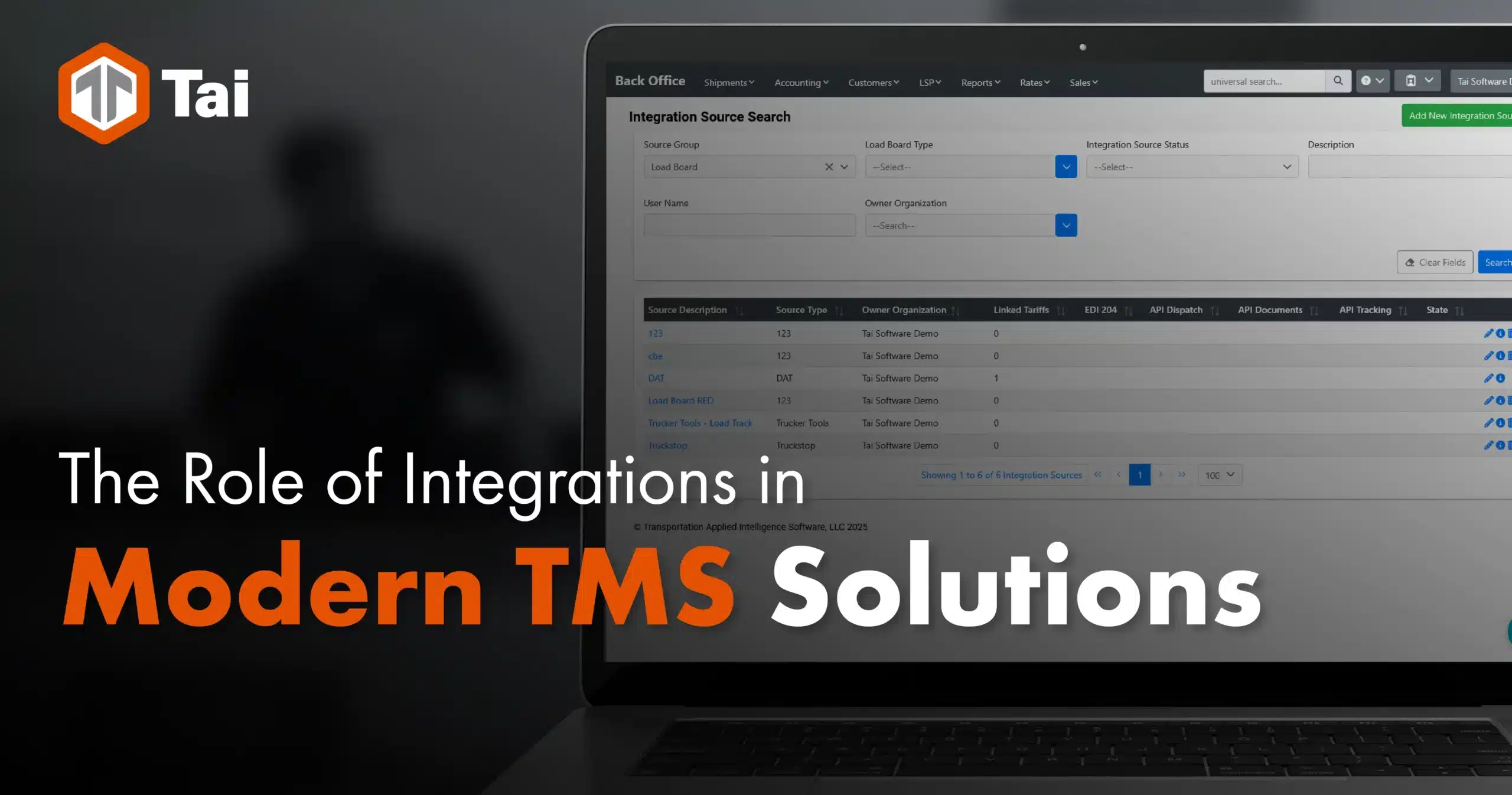Freight brokers are on the front lines of the trucking industry. They act as an intermediary between shippers and carriers, which is not an easy job. Plenty of freight brokers claim to have been under pressure from their shippers because they could not find trucking companies who could provide them with quality service in a timely manner.
What do freight brokers do when it’s tough to find load coverage? What should they consider before hiring new carriers?
The Problem
A scenario where a broker gets a call from their shipper complaining about truck drivers is not uncommon. Perhaps the trucker was late, handled the freight poorly, or was even impolite.
The consequences of this issue are evident – the shipper will not want to work with the broker again. The next time a customer has freight that needs to be moved, the broker is forced to scramble for available and reputable carriers. This problem could lead to an even bigger issue – lack of load coverage, which means increased wait times for their customers’ shipments.
There are various approaches for a broker to locate carriers who will suit their needs as well as the needs of their shipper.
Carrier Sourcing
What are the best methods for finding reputable, high-performing carriers? Carrier sourcing is one way to begin this process.
Referrals
Arguably the easiest and most effective way to find carriers is through referrals. Ask other licensed freight brokers you come in contact with if they have any carriers they would recommend.
What do you need to keep in mind when asking for carrier recommendations? Being specific about the type of freight and shipment size will help brokers ask their logistics network for more precise suggestions.
A list of recommended carriers can also be compiled based on past experiences, for example, how long it takes for their shipments to reach the destination, what was done with the freight during transit, and whether or not they were on time.
Freight brokers can use these referrals as a starting point in finding carriers who will meet their expectations – both for themselves and shippers.
Load Boards
Load boards are online places that provide brokers with a way to list their available loads and find carriers capable of moving that type of shipment. If the broker is not looking for anything in particular or has open slots on their trucks, load boards allow them to take bids from potential carriers interested in working with them.
This method is beneficial because it allows brokers to compare rates and customer feedback about carriers interested in their loads.
Using software with integrated load boards is a great way to streamline the process of finding carriers. Software is one way in which a broker can save time when looking for new carriers, but they should always double-check references before signing with a new company.
FMCSA Data
Although it is presented as a viable option for finding carriers, the Federal Motor Carrier Safety Administration (FMCSA) data should be used with caution. Some brokers are wary about the information reported in this database because there have been cases where shippers or drivers report false grievances against competitors to take business away from them.
When using FMCSA data, it’s essential to examine all available feedback and verify claims before making decisions. Be sure to use it in conjunction with other carrier-finding methods, not by itself.
Other Options
Social media and Google are not the best options for finding carriers, especially when a broker is under pressure to find load coverage quickly.
If a load is posted using such services, drivers who are only close by and on social media may assist you. A Google search will not provide a broker with an accurate picture of the available carriers.
Pinpointing a Good Carrier
Once you find a viable carrier option for your next load, it is important to know what you are looking for to make the right choice. What makes a carrier high-quality?
Being on time is one of the most critical factors when determining if a carrier will benefit your brokerage business. Being late can cause many issues that could create problems down the line, such as missed connections and unhappy shippers.
When looking at quality services in the freight industry, it’s essential to understand how much experience the carrier has had and if their financial stability makes them reliable.
It’s also important to know if their equipment is well-maintained and clean, as that can affect the condition of your freight.
Are they insured? What types of loads do they typically carry? Will there be enough room for other items you need to transfer, or will they need to be transported on a different truck? What is the carrier’s payment policy, and what is their online reputation like?
Focus on these points as a way of finding carriers who are high-quality.
Price Points
Understandably, no one wants to go for the most expensive carrier, but, keep in mind, quality services come at a price.
Be sure to find out what the cost of the load will be before you choose which carrier to use. Low-paying loads typically come with low-quality drivers. There are exceptions to the rule, but they are not the norm.
There is also a chance you may have to pay more than what was quoted if unexpected charges or fees are involved in transporting your shipment.
This is why it’s important to know how much experience carriers have, whether their equipment is safe for travel, etc., so that you can accurately determine the cost of the load and ensure it will be a good deal.
High-quality carriers charge higher than average rates for their services, but they also typically provide better customer service and have more experience behind them.
Asking about these details before making your decision is always beneficial when there are multiple carriers to decide between.
Being a Reliable Broker
You will obtain better odds in finding good-quality carriers for yourself and your customers if you establish yourself as a trustworthy broker.
What is it that makes a broker reliable?
One factor would be how often you offer your services and the types of rates and charges you give out. If there are constant changes or difficulties in getting payments from clients, this can make it harder for drivers to trust you as a broker.
Keeping up with your end of the deal is also crucial in being reliable, as this can affect how trustworthy you are to carriers and drivers who work for you.
One of the most significant factors is respecting the Hours of Service (HOS) regulations. HOS determines the number of hours truck drivers are allowed to work, the off-time they need between shifts, and how long they can drive.
As a broker, it’s your responsibility to know these regulations so you’re not giving out loads to carriers who will be breaking them or giving impossible deadlines. If you do this, it won’t be easy to find good-quality carriers who are willing to work with you and your brokerage business.
Speeding Up Your Processes
Lastly, as a broker, choosing an appropriate carrier can be difficult if your process slows you down.
What can be done to speed up your workflow?
The first thing is utilizing your resources and contacts as much as possible. They will most likely know the best carriers around and may even have worked with them before. Existing relationships can also make it easier for drivers to trust brokers with whom they work frequently.
Having a designated system in place is also essential to ensure that you aren’t wasting time and energy with tedious and inefficient workflows. Having your schedule, invoices, contracts, etc., all set up in one place can help you access them quickly when needed.
Transportation management system (TMS) software helps brokers implement automatic processes by creating an organized structure that makes it easy for drivers and carriers who you work with to access information.
By taking this extra step, brokers can ensure they provide better services to their customers without wasting too much time looking for good-quality carriers.
Conclusion
Finding efficient, timely, and responsible carriers can be tricky when you are in the freight brokerage business.
When sourcing carriers, you can look at your existing resources, contacts, online load boards, and search tools to find quality carriers. Take some time to analyze each option and consider their experience, equipment safety standards, and compliance with Hours of Service regulations.
Speeding up your processes also plays a role in how quickly you can find suitable carriers to provide reliable transportation for loads. This means having an organized system that makes it easy to access the necessary information when needed. Additionally, using TMS software will make sure everything runs smoothly and efficiently.
If you’re interested in checking out freight brokerage software that will revolutionize your business and help you find load coverage in no time, contact us at Tai Software for more information. We’d be happy to help you out!







